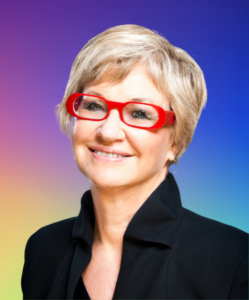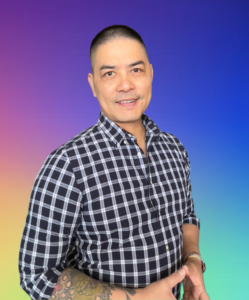Over 1 million Australians are currently living with an eating disorder. Eating Disorders do not target any one group; 30% of people with an Eating Disorder are male. Various factors influence a person’s relationship with food, including genetics, emotional state of mind, and exposure to the Western “thin” model ideal.
There is growing evidence to support the fact that the LGBTIQ+ Community is at greater risk of developing an Eating Disorder. As a group, exposure to bullying, violence, name-calling, trauma, and isolation from family and friends all cause tremendous stress on an individual. These challenges can lead to a changing relationship with food and negative perceptions of their body.
Types of eating disorders:
- Anorexia Nervosa – Often, those experiencing Anorexia have negative views of body image and may see themselves as being constantly overweight, potentially resulting in severe food restrictions and excessive exercise.
- Bulimia Nervosa – Individuals with Bulimia engage in binging episodes when they eat large quantities of food in one go. Binging episodes are followed by purging (vomiting, laxatives, fasting, excessive exercise) to relieve the guilt associated with binging.
- Binge Eating Disorder – Binge Eating Disorder is Australia’s most common Eating Disorder. Individuals suffering from this condition will consume large portions of food, even when not feeling hungry, resulting in shame or guilt. Unlike Bulimia Nervosa, individuals may not purge or vomit after consumption. Typically shame can result in excessive dieting following a binge.
- Disordered eating is a disturbed and unhealthy eating pattern, including restrictive dieting, compulsive eating, or skipping meals. Disordered eating behaviours, particularly dieting, are the most common indicators of the development of an eating disorder.
It is challenging to see someone you love experience an Eating Disorder, and getting someone to accept they need help is tough. As a carer, parent, or friend, therapists can talk through strategies to assist in helping to start a person’s recovery. Alternatively, if you know you are concerned you are living with an Eating Disorder, it is essential to see a GP to get a diagnosis and discuss options such as seeing a Medical Professional and sourcing a therapist or counsellor.
Some common symptoms of Eating Disorders:
- Extreme diets – may include fasting, skipping meals, calorie counting or obsessively monitoring food intake.
- Constant monitoring of weight or body measurements.
- Overeating or binging in secret.
- Purging, vomiting or using laxatives.
- Constant weight changes.
- Disruption to the menstrual cycle.
- Feeling anxious about eating in public.
- Excessive exercising or refusal to disrupt exercise patterns.
- Mood changes that may involve depression, anxiety, or irritability.
- Changes in confidence or self-esteem.
- Reluctance to engage in social events with family or friends.




